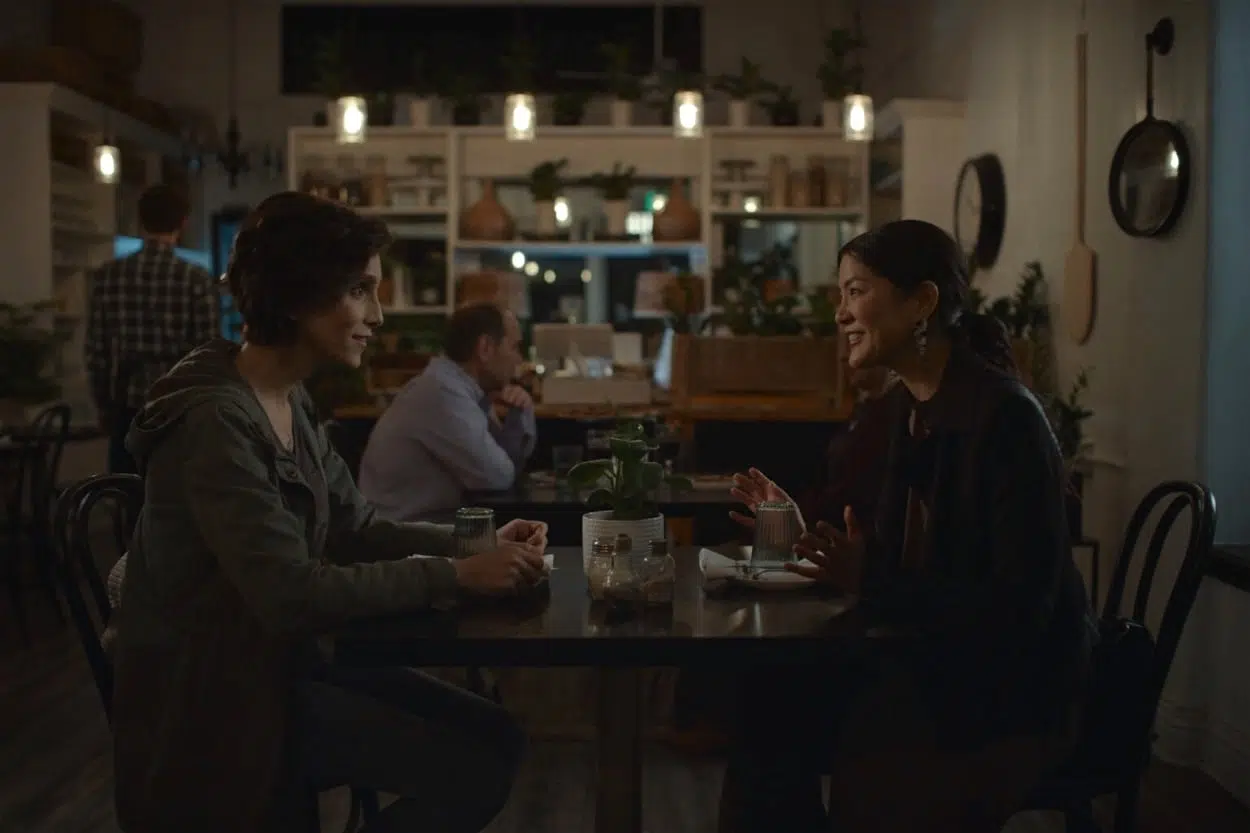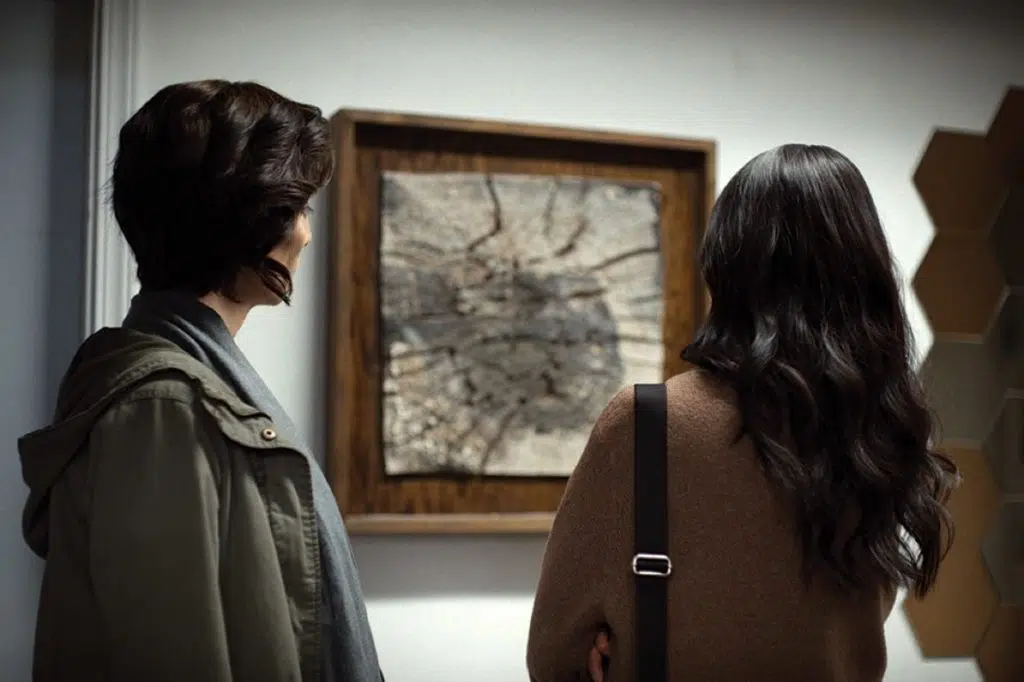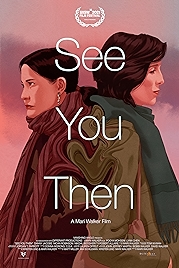See You Then pulls a neat “did not see that coming” switcheroo early on, though a glance at any of the blurbs about the film will reveal what it is. It doesn’t matter much – it comes scant minutes in, so won’t ruin the fun.
Two women meet up. They were evidently once lovers. Both seem nervous. It’s been a long time, at least ten years, since they saw each other. Kris (Pooya Mohseni) seems keen, nervous, Naomi (Lynn Chen) less sure, wary. Having got the “look at you”, “it’s been so long” niceties out of the way, the two of them head for a friendly restaurant, where Kris reveals that her changed appearance isn’t just down to time, it’s down to a change of diet – she now eats vegetables! – plus the fact that she’s transitioned from male to female.
It caught me sideways, since Mohseni is a convincing woman. And so I looked her up. Couldn’t find any background details that said she was born a man, though in real life Mohseni is a trans activist, so that might be a clue. No giveaway pronouns either, though current practice usually goes along with self-identification to such a degree that all historical alternative identifications are retconned out of existence – look up The Matrix, for instance, and the IMDb tells you it was Lana and Lily Wachowski who directed it, even though they were both going by the names Larry and Andy at the time.
In the end I gave up. Ultimately it doesn’t matter. I’m not watching Mohseni anyway, but Kris, the character she’s playing. See You Then also completely understands that these rocks – pronouns and the gender wars – are lurking there dangerously and it steers a course around them to tell an emotionally charged story of two people, the one who dumped the other because he/she couldn’t live a lie any more and the one who got dumped and is still nursing the wound.
It’s a simple film, skilfully escalating its emotional revelations, and consists of little more than Kris and Naomi talking to each other – in the restaurant, a bar, at Naomi’s house, at an art gallery in the college where Naomi now teaches. There are also a couple of guys who hit on Kris, as if to reassure us that in the screen world Mohseni passes for female too.
This is at least one hit too many and slightly unfair to Lynn Chen, who is the more natural and emotionally confident of the two actresses. Naomi’s story – she was a performance artist who used to masturbate on stage (what an act) but is now more the diligent wife and mother, a college teacher, and a woman boiling with frustration. She too wants to “transition” – she uses the word – but to the life she thought she would have had until the role of suburban drudge claimed her. Maybe transitioning is for all of us, looked at this way.
It bobs along. “Issues” are aired, but mostly it’s a drama about two vulnerable people getting their emotional baggage out onto the table. Initial awkwardnesses in the acting, writing and directing settle down and See You Then gradually becomes assured, finds its groove. By the final scenes, when emotional depth charges are beginning to explode (no spoilers), it is a beast of its own colour, helped along enormously by a soothing, sensitive soundtrack by Robert Allaire and cinematography (Jordan T Parrott) that’s visually similar – smoky, shadowy.
Props to the actors, director Mari Walker, co-writer Kristen Uno and the production team, who knew raising money for this sort of film was going to be very difficult and so (at the recommendation of Jim Cummings, who’d just done the same for his The Beta Test) hit the crowdfunding trail and financed the film that way.
It’s not in the beginning a film about the trans experience, or at the end. The whole trans thing is just one element, all part of the mess of being a human, though obviously not something experienced by most of us. But then nor is being a superhero, and there’s a massive audience for that.
See You Then – Watch it/buy it at Amazon
I am an Amazon affiliate
© Steve Morrissey 2022


